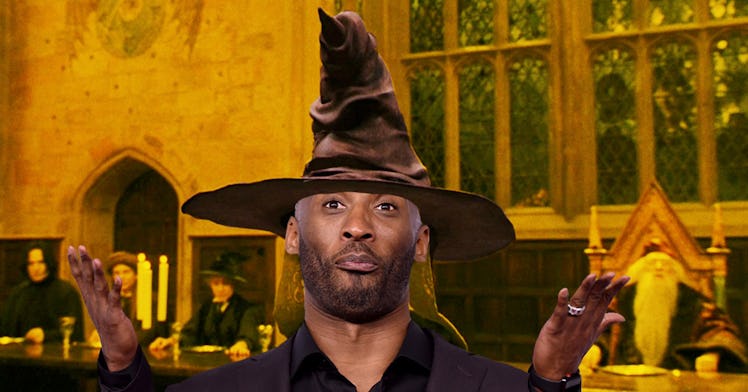Kobe Bryant’s New Book Series Is a Bizarre Spin on Harry Potter
It's clear Bryant was hoping to make the next beloved YA book franchise. So why does 'Wizenard' feel so dull?

Since retiring from the NBA in 2016, five-time Champion Kobe Bryant has taken a surprising career turn and gotten involved in the world of the arts. At last year’s Academy Awards, Bryant took his first step towards EGOT status when he won Best Animated Short for Dear Basketball, an animated short set to a poem written by Bryant in 2015. Now, Bryant has entered the literary world with The Wizenard Series: Training Camp, a new young adult fantasy sports book series that is meant to be Harry Potter meets Hoosiers in terms of merging the inspirational sports genre with teen fantasy. It’s an ambitious undertaking but does Bryant succeed in creating a compelling franchise?
The Wizenard Series, which was created by Bryant but written by Wesley King, tells the story of the Fairwood Community Center basketball team, a ragtag group of players who are need of a coach to help them reach their full potential. In walks Rolabi Wizenard, a mysterious, stoic man (think Phil Jackson but magic) who makes it clear that the team will be run his way. Instead of having them run simple five-on-five drills or run suicides to get them in shape, he has them participate in magical drills that involved, tigers, briefly losing their limbs, and similarly strange obstacles that don’t seem to translate on the basketball court. At first this approach confuses the players but soon they begin to realize Rolabi is more interested in improving his roster as people than players, though it becomes clear that by improving the former, the latter will follow.
Training Camp is nearly 600 pages and is broken into five “books”, each of which shows the team’s training camp from a different player’s perspective, Rashomon stlye. Each of the players have their own strengths and weaknesses, which Rolabi is able to help them understand with his bizarre magical coaching techniques. Rain is talented but not a team player (is Kobe showing some self-awareness?). Twig is too scared of failure to really try. Cash’s self-doubt hinders his potential. Peno’s fear of being let down keeps him from being a leader. And Lab believes he’s doomed to let everyone down. This turns out to be the greatest strength of Wizenard, as each of the five players who narrate have distinct personalities that allow the reader to feel familiar with them by the end of their respective books.
While the characters are solid and memorable, if not quite spectacular, Training Camp, on the whole, is fine. It’s stuffed with cliches and the “overcoming the odds” narrative that it repeats over and over again but, in fairness, this is pretty standard when it comes to the YA fantasy genre. Part of what has made the Harry Potter series such a phenomenon was that it had the nuance and moral ambiguity that is rarely found in its counterparts, so it’s hard to fault The Wizenard Series too much for resorting to simple and straightforward instead of exploring the deeper philosophical or existential questions.
Where The Wizenard Series really falls short is world-building, as we never get a clear picture of the universe where these kids exist. There is clearly magic in the world but while some characters seem to be aware of the existence of wizards, others seem skeptical. And beyond the role magic has in society at large, we also aren’t really sure how the magic actually works, we’re sort of just asked to accept anytime something out of the ordinary happens, which arguably leads to more questions than answers. Given the length of Training Camp, it’s odd that there’s still so much we don’t know and it makes us wonder if the book would have had an audience surrogate (think Luke Skywalker or Harry Potter) to help the reader get a better understanding of what’s actually going on.
In terms of cultural criticism, we get some vague instances of lower class oppression ala Hunger Games but in general, we don’t get a clear explanation of what caused this world to become the way it is and whether or not there is any clear path to creating a more egalitarian society. Could the sequel to Training Camp involve Rolabi teaching the kids the values of democratic socialism that ultimately leads to proletariat uprising? Only time will tell (but, for the record, that would absolutely be a book that we would read).
Will Wizenard become a cultural touchstone that is read by millions and eventually adapted into a hit film series that is watched by millions? Probably not but those lofty expectations probably aren’t really fair, especially since Bryant has virtually no background when it comes to writing, beyond his Oscar-winning poem. Perhaps as the sequels are released, Wizenard will blossom into the next Harry Potter. But for now, it feels safe to say that Bryant has created a competent but forgettable YA series that is unlikely to stand the test of time.